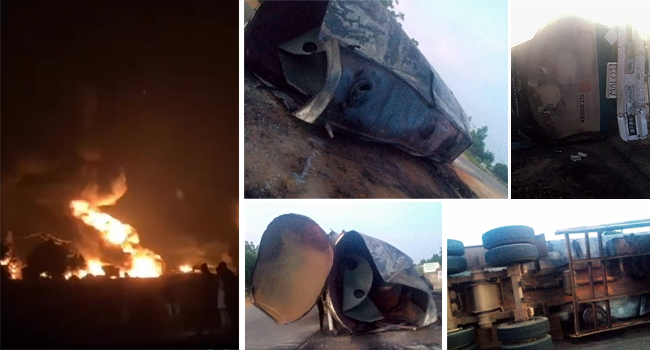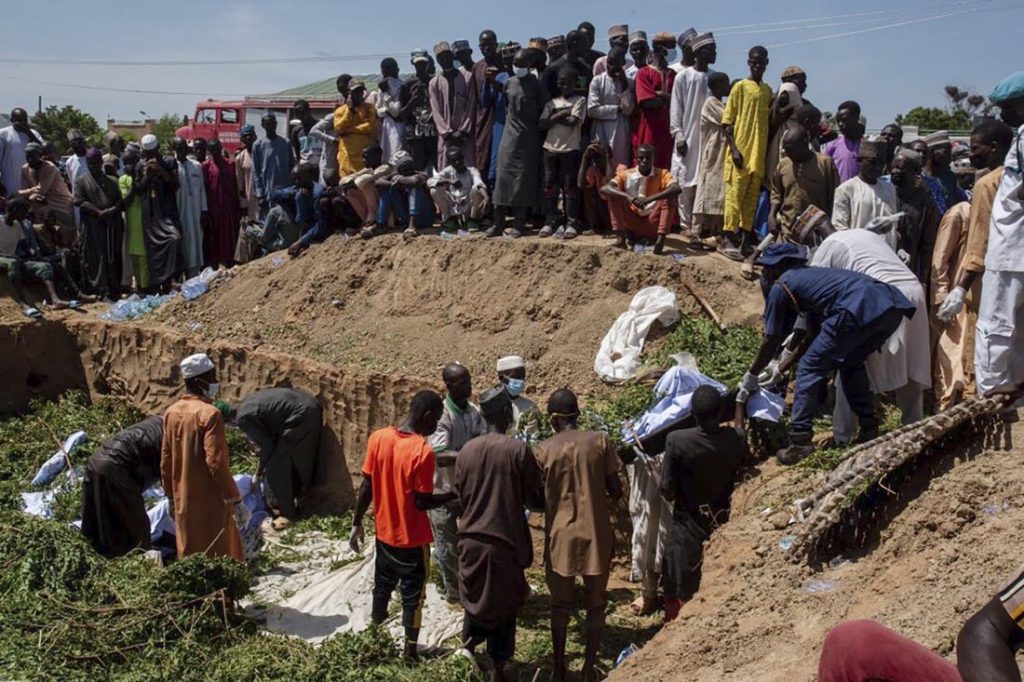Tragedy Strikes: Over 140 Dead in Nigeria’s Tanker Explosion
In one of the deadliest road accidents in Nigeria’s history, over 140 people lost their lives when a fuel tanker exploded in the town of Majiya, Jigawa state. This heartbreaking incident occurred late Tuesday night as locals rushed to collect spilled gasoline from the overturned vehicle, resulting in a catastrophic fire.
The Incident
The tragedy unfolded around midnight when the driver lost control of the tanker on a highway. As news spread, residents flocked to the scene with buckets and containers, eager to gather the leaking fuel. Unfortunately, this led to an explosion that engulfed many in flames.
According to police spokesperson Lawan Adam, “The locals were attempting to collect from the tanker when the explosion occurred, igniting a fierce blaze.” Eyewitness accounts describe a chaotic scene where people ran in every direction, crying for help as flames consumed everything in their path.
A Community in Mourning
The aftermath of the explosion left the community of Majiya in deep sorrow. Many of the deceased received burial in a communal grave, while others found rest elsewhere. Emergency services reported that numerous bodies remained beyond recognition due to the severity of the fire.
Local resident Sani Umar recounted how quickly the fire spread. He stated, “People were running in every direction, crying for assistance.” The emotional toll on families has been immense, with many losing loved ones who simply tried to help others escape.
Government Response and Safety Concerns
In response to this tragedy, Nigerian authorities announced measures aimed at improving safety standards for fuel tankers across the country. The Federal Road Safety Corps issued a nationwide order for stricter regulations before tankers could operate on the roads.
Nigerian President Bola Tinubu emphasized his commitment to a “swift and comprehensive” review of fuel transportation safety protocols. This incident underscores a troubling pattern; fatal accidents involving tankers do not occur infrequently in Nigeria, where traffic laws often face poor enforcement.
The Context of Fuel Collection
This tragic event forms part of a larger issue in Nigeria. High fuel prices have driven many to risk their lives by collecting spilled gasoline after accidents. Since the government removed costly fuel subsidies last year, prices have tripled. This increase leads desperate individuals to gather fuel with cups and buckets following such incidents.
Recurring Disasters
Fatal accidents involving fuel tankers occur frequently in Nigeria. In 2020 alone, reports indicated over 1,500 such incidents resulting in hundreds of deaths. The lack of proper training for tanker drivers and inadequate vehicle maintenance significantly contributes to these tragedies.
Timothy Iwuagwu, president of the Institute of Safety Professionals of Nigeria, noted that many petrol tankers do not meet international safety standards. This negligence leads to frequent accidents that often end in explosions when local residents attempt to salvage fuel.
Looking Ahead
The recent explosion has prompted calls for change within Nigeria’s transportation system. Authorities urge better safety measures and education for drivers on safe practices. The hope remains that by addressing these issues head-on, future tragedies can find prevention.
A Call for Awareness
This incident serves as a stark reminder of the dangers associated with fuel collection practices and highlights the urgent need for improved road safety measures across Nigeria. While communities mourn their losses, they also demand accountability and reform within the transport sector.



